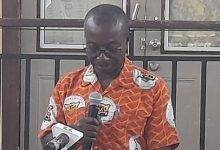
FINANCE Minister, Ken Ofori-Atta, yesterday requested Parliament to approve additional GH¢6.4 billion to help government finance developmental projects outlined in the 2019 budget statement and economic policy.
If approved, government’s expenditure estimate for the 2019 fiscal year would amount to GH¢85.1 billion.
The House in December 2018 appropriated a total of GH¢78.8 billion for government to finance the 2019 budget.
Mr Ofori-Atta made the request before Parliament when he presented the Mid-Year Fiscal Policy Review of the 2019 Budget Statement and Economic Policy and Supplementary Estimate for the 2019 Fiscal Year.
He explained that the additional funding, which would be raised from both domestic and foreign sources, would be used to finance infrastructural projects, amortised some energy sector debts and meet other statutory financial obligations.
The Finance Minister said as a result of the revision of the fiscal framework, the 2019 appropriation of GH¢78.8 billion that was approved in August last year would not be adequate to cater for the additional programme needs which would increase the total appropriation to GH¢85.1 billion.
“Mr Speaker consistent with Article 179 sub-section 8 of the Constitution, the request for a supplementary estimate is necessitated additional precautionary expenditures in response to regional security development and amortisation of contingent liabilities associated with take or pay contracts which have crystallised,” he said.
The minister said in line with the objective of building a strong economy for jobs and prosperity, the government outlined a number of priority objectives of the 2019 budget.
The priority objectives, the minister mentioned were maintaining macroeconomic stability, modernising agriculture, provision of efficient infrastructure, industrialisation, private sector growth and entrepreneurship, social intervention policies and financial sector clean-up.
“I am happy to announce that the priority projects are on and we are delivering the real change that Ghanaians voted for so massively in December 2016. In the last 31 months, year-after year, budget after budget together with the active support of people and businesses, we are, building a confident, stronger and ambitious economy. The shared progress we are making is real and the credit for this success is a shared one with the people we are elected to lead,” he said.
Mr Ofori-Atta said revenues raised for the first half of 2019 were not enough to meet government expenditure.
He said total revenue for the first half of the year amounted to GH¢22.8 billion compared with the programme target of GH¢27.0 billion, while government amounted to GH¢34.2 billion for the period compared with the programme target of GH¢36.8 billion.
The minister said government fiscal operations resulted in a cash deficit of 3.3 per cent of Gross Domestic Product, compared with the programme target of 2.9 per cent of Gross Domestic Product (GDP) for the half-year.
“A significant portion of the deficit was financed from foreign sources (81.3 per cent), including proceeds from the 2019 Eurobond issuance which raised a total of $3.0 billion in seven-year, 12-year, and 31-year Eurobonds of $750.0 million in 41.25 billion and $1.0 billion respectively. The domestic financing of the deficit including market operations constitute the remaining 18.7 percent,” he said.
The Minister of Finance disclosed that government has revised its total revenue and grants for the 2019 fiscal year to GH¢58.9 billion which was 0.01 percent point lower than the original estimate of GH¢59 billion.
Of the projected revenue, he said GH¢43.1 billion was expected to be boosted by stronger performance from higher corporate income taxes, petroleum excise taxes and domestic VAT in the second half of the year and non-tax revenues were expected to be enhanced by the proceeds from the sale of electromagnetic spectrum as well as fees from the renewal of telecommunication licences.
Mr Ofori-Atta indicated that the government had worked to stabilise the economy with all the macroeconomic indicators improving.
“Inflation has dropped to a single digit and dropping, interest rates continue to drop, external payment position has strengthened, exchange rate
BY KINGSLEY ASARE & JULIUS PETETSI & JONATHAN DONKOR






